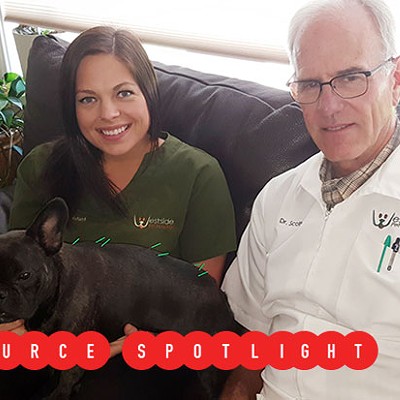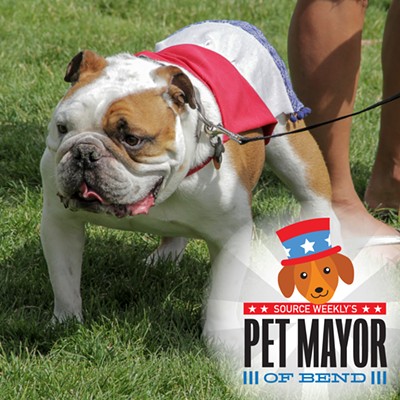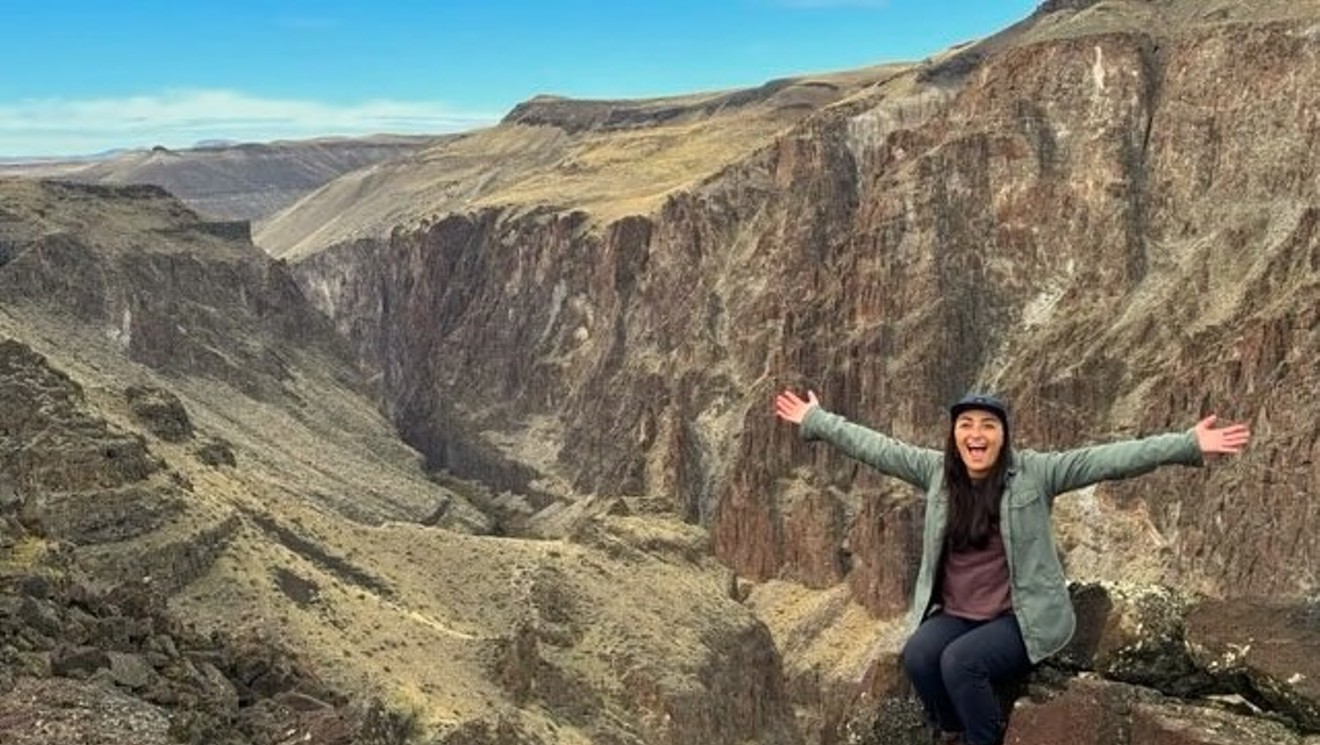Summer is a great time to live in Central Oregon, inviting warm days and long evenings. Yes, have fun, but be safe by being aware of potential health hazards.
A few reminders:
Cheat grass (bromus tectorum) is an invasive grass found everywhere in Central Oregon. It grows in long stalks with brushy stickers on the ends. Cheat grass easily gets caught in the hair between the toes, in ears, nose and under eyelids. Have your pet examined if you see them squinting, sneezing or chewing paws after being outside.
Another potential hazard: Algae bloom, also known as pond scum. Recognizable by its bluish-green, grassy or soupy appearance, algae blooms occur in July and August in the Cascade Lakes. Blooms can affect the nervous system, liver, and digestive tract. Symptoms include skin irritation, a staggering gait, sore throat, vomiting and diarrhea. Do not let your pets swim in suspicious looking water.
And, while grilling is a favorite evening activity and your dog probably drools at the smells, salmon poisoning is a potentially fatal disease caused by ingesting a single-celled organism found in raw salmon. Signs include fever, vomiting, diarrhea and depression. Prevent it by properly disposing of waste after cleaning your fish. Tularemia is caused by bacteria that live in rabbits and rodents. It is transmitted by ticks, deer flies or by eating an infected animal. It causes severe sickness.
And, of course, road trips are a big part of summertime fun. But please ensure your pet has a safe place such as a crate or a pet safety belt. Make sure your pet is properly identified with a name tag and your cell phone number. Microchips are also a smart choice. Never open the car door until your pet is properly leashed. Feed them at least two hours before your journey starts, and not while traveling, to lessen the chance of an upset stomach. Small amounts of water should be available. A chew toy will keep them occupied. Stop every hour or so for a little walk and potty break, and after four hours make longer stops for food and a longer walk. Never leave them unattended; heat stroke happens quickly. Many hotels allow pets; check beforehand when making reservations.
Submitted by Dr. Scott D. Shaw, Westside Pet Hospital and the president of the Board of Directors for Central Oregon Veterinary Medical Association.
























